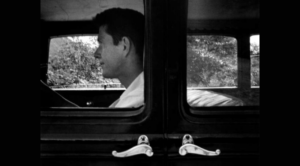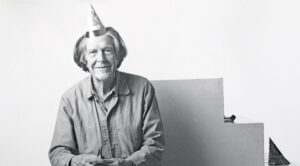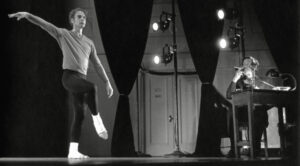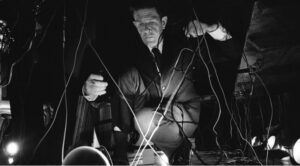BY DAVID SHENGOLD
David Shengold explores the opera's tragic heroine, a character who is in some way familiar to us all.
Most American accounts of Gounod's Faust get around sooner or later to two diverting facts about the piece. First, that in its early decades the Metropolitan Opera performed the score so often that wags dubbed it the "Faustspielhaus." The second, that Germans long billed Gounod's 1859 opera as Margarethe due to the nationalistic feeling that the French libretto (by Jules Barbier and Michel Carré) trivialized the profundities of the verse drama (published in 1806) by Johann Wolfgang von Goethe on which it is based. That these nuggets remain an essential part of the opera Faust's "buzz" reflects a historical and sometimes still-evident Germanic hegemony in American musical circles: the pun depends on comprehending the compound German word for a "festival theater" like Bayreuth, and somehow American operagoers are meant to cluck knowingly about the wrongs Gallic sentimentalism had wrought on his work, even though few in our contemporary culture have actually read Faust or any other work by Goethe. Such charges get hauled out again for Thomas' Mignon (1866) and Massenet's Werther (1892), both of which show the influence of Gounod's example, but rarely in relation to a work like Eugene Onegin (1879) which similarly jettisons most of its literary source's complexity to concentrate on the romantic plot.

The more intellectually minded composers Boito in Mefistofele (1868) and Busoni in Doktor Faust (1925) attempt to engage the Goethean metaphysics that Gounod and his librettists chose to ignore. That Barbier and Carré were attempting something else is plain from the title of Carré's 1850 boulevard play Faust et Marguerite, which, rather than Goethe, served as the opera's basis. An eminently practical view sounds from the memoirs of Dorothy Kirsten, a ranking Met Marguerite from 1947 through 1964 who actually read the Goethe and studied the opera's background before tackling Gounod's heroine:
"[I]n 1859, many music critics and literary figures did not understand why the composer had concentrated mainly on the Faust-Marguerite relationship. As far as I am concerned, what he did makes perfect sense because it is the part of the classic that is most adaptable to the lyric theatre."
Gounod was considered an innovator in his time, but with Faust he was crafting an opera for the well-heeled audiences of Second Empire Paris, in whose worldview metaphysics played no appreciable role. Concentrating on the romantic plot (or--seen differently--the downfall and redemption of Marguerite) made theatrical sense; and it soon made the opera Faust wildly popular, and Gounod famous throughout Europe.
Goethe's Gretchen is a simple, religious girl, seemingly chosen almost randomly by Mephistopheles for Faust to victimize: that jaded doctor has taken a witch's potion to rejuvenate him, and as his devilish sidekick observes, "My friend, with that drink in your belly/ You'll see a Heaven in every housewife." [Significantly, the poem's very next lines form the street scene in which Faust, meeting the young Gretchen for the first time, offers her his arm, to be met by modest rebuff. In the opera, this exchange gives the heroine a strikingly unconventional first vocal entrance. (Her image has been shown to Faust and the audience as a vision, to engender the excitement of both.) This certifiably prima donna role has no entrance aria, such as the Queen's "O beau pays" in Les Huguenots. Originally Gounod meant to follow a different convention of French nineteenth-century opera and have Marguerite (like Eudoxie in La Juive) introduced in duet. As written, the brief scene provides the soprano and director with an opportunity to define Marguerite's character, and, in a kind of foreshadowing, show her essential apartness from her fellow villagers. She revisits this fateful meeting longingly in a daydream in the Garden scene in recitative fragments masterfully laden into the wistful "King of Thule" ballad with its ironically apposite theme of faithfulness unto death; and again, when insane with grief, in the Prison scene, where Gounod's score restates the devastatingly intimate Andantino music underlying the pair's initial exchange. All citations from Goethe's Faust, Part One are from Randall Jarrell's posthumously issued translation (Farrar, Straus and Giroux, New York, 1976)]

Goethe scholar Eudo Mason has noted of the author's Faust: "Once Gretchen appears, and whenever she appears, she concentrates all the limelight on herself and Faust loses in stature. She brings her own world with her, and the kind of interest that belongs to that world." A similar emotional shift affects the opera. In the hands of a tenor who can act, the elderly Faust can show some range of emotion in the opening scene and (once rejuvenated) in his great aria praising his new love. But, the character tends not to make the emotional connection with the audience that Marguerite does, both through her greater chances to reveal interiority (as in the potentially heartrending Garden Scene passage when she speaks of her mother's death and her quasi-maternal feelings for her sister, also lost) and through her greater travails: romantic abandonment, solo pregnancy, shunning by her community, a brother's curse, imprisonment and fear of damnation. Marguerite in her simple human vulnerability becomes the emotional center of the opera; and when she's not there we, like Faust, are haunted by her fate. Maybe those German re-titlers were on to something.
Gounod in his Prix de Rome years (1840-42) familiarized himself with Gérard de Nerval's influential 1828 translation of Faust, filling his copy with notes in the event that he should attempt to do an operatic treatment. Several years of church-based music making followed, and Gounod nearly took up the priesthood himself. With this grounding in ecclesiastical music (including contrapuntal compositions for the organ in the style of Palestrina), among the first secular pieces he undertook after deciding to pursue a theatrical rather than clerical vocation was Goethe's "Cathedral" scene, showing the pregnant Gretchen trying to pray while being harrowed to the point of fainting by an Evil Spirit. This early attempt at a Faust scene (in the tradition of Berlioz' early efforts, also Nerval-inspired and incorporated into the oratorio La damnation de Faust in 1846) was not to become part of the opera as we know it, but the magnificent, influential (and still scarifying) scene Gounod eventually composed carried over its use of a contrapuntal organ introduction and baleful C minor key.

Cut from the start of the opera's Prison Scene was a projected air de folie (an aria of madness) in which the despairing prisoner would relate the death of her child. It should be noted that Goethe leaves it ambiguous whether Gretchen is indeed an infanticide, since in her maddened condition she both claims that she drowned it and blames others: "They took it away from me to grieve me/And now they say I've murdered it." Presumably such a dramatic piece might have overtaxed the part's strong-willed originator, Marie Miolan-Carvalho (1827-1895), who had the added strategic advantage of being the wife of the Théâtre Lyrique's director. Among several inspirations for the diva Carlotta in Phantom of the Opera, Miolan-Carvalho scored international successes in her Gounod roles, but she did insist on having her trademark peppy waltzes inserted into Mireille (1864) and Roméo et Juliette (1867). Gounod's music for Marguerite's prison aria might still come to light in some library or storeroom. For now, we can content ourselves with Boito's spellbinding "L'altra notte in fondo al mare," Mefistofele's greatest inspiration. Marguerite's progressively higher-by-a-step pleas for redemption in Gounod's staggering final trio, however familiar to millions after renditions by Jeanette MacDonald (San Francisco) and Roberta Peters (Tonight We Sing), retain their surefire thrill.

Faust's deserted lover compelled many musical imaginations. Schubert's famous "Gretchen am Spinnrade," corresponding to Gounod's usually cut but haunting "Il ne revient pas," is but one of half a dozen Gretchen-related songs that he set from 1814 to 1817; Glinka, Liszt, Wolf and Pfitzner (among many others) followed his lead. Mahler's Symphony No. 8 is the rare work to treat the Gretchen of Part Two of Goethe's work. Herself redeemed at the end of Part One (as shown in Gounod's opera), the traduced maiden of Faust's renewed youth appears near the symphony's close as the soaring soprano deemed "A Penitent (Gretchen)" to plead with the Virgin for his redemption. As Mahler's grandiose music signals its accomplishment, a Mystical Chorus sums up, with Mary and Gretchen adding their voices: "The Eternal Feminine draws us upward." The concept of an Eternal Feminine may seem silly (or even offensive) after several waves of feminism; but the Marian resonances of Goethe's Gretchen as a suffering mother and a redeemer retain their power, as does the character's essential humanity. Women deserted by men who have impregnated them, stigmatized single mothers, and soldiers returning from war full of bitterness seem likely to remain painfully familiar tragedies. Faith, whether religious faith or faith in one's own instinct and dignity, can transform or redeem difficult circumstances. Gounod's all too human Marguerite, compassionately drawn in ravishing music, still draws us upward.
Adapted with permission from an article originally published by the Metropolitan Opera.






